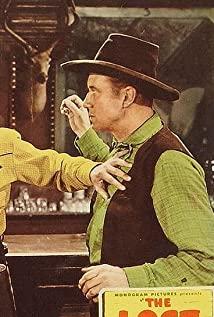According to this ideal and code of conduct, the "sister-in-law" advocated by Mencius has no value, that is, for the sake of complete morality. The uncle can only do nothing against the "sister-in-law in the well", although this behavior caused the original Avoided loss of life, but it is good for maintaining moral purity and integrity.
Judging from such examples, cynicism and Skarduism, and even those general moralists, can be described as a stick in secular terms.
However, there is also another sentence in "Mencius": Do one injustice, kill one innocent, take the world and do nothing. This is also a typical moralism. If anyone sticks to this standard, I am afraid that Chinese history will become unclear. However, Mencius said: "At this time, at another time", this has returned to the concept of "power". It seems that Mencius’s remarks are not only logically wrong in individual paragraphs, but also in theoretical contradictions in the entire system. This is a digression.
"Rear Window" is a Hitchcock movie. There have been too many people talking about Hitchcock, his shooting method, his imagination and creativity, and the lace news of those movies, no matter where it is There are a lot of books or websites about movies, but what I want to talk about is Hitchcock’s discussion of morality, plus a little bit of my thoughts.
Some people say that Hitchcock is good at playing with morals, and is keen on playing with morals. I think it is a bit biased. I just said that in the movie "Rear Window", I did not see where he played with morals. Instead, Hitchcock gave us a discussion about ethics.
We all know that peeping is immoral, and killing is also immoral. In terms of pure moralism, there is no quantitative difference between the two, because they are both immoral, and there is no one who is more immoral than others. If there is a country whose laws are made by pure moralists, then murderers and voyeurs should be put to death.
But the film tells the fact that the voyeur avoided moral condemnation because the voyeur peeped at the neighbor killing, and all the attention was focused on the murderer. This is in line with the common sense of society, and any society will act accordingly. Because there is no country in this world where laws are made by pure moralism. Almost all societies are utilitarian. It has a completely different way of doing things from pure morality. From the perspective of utilitarianism, peeping and killing occur at the same time. Compared with murder, voyeurism is not so immoral. A voyeur spy on a murder case and expose it. This voyeur can not only avoid moral condemnation, but may also be appreciated in some way. It can be said that they have been imposed between them. A relationship of magnitude, which is more vividly expressed in the sentencing of the law, brings higher efficiency than adherence to pure ethics and the moral construction of the entire society.
The film tells such a fact, but the greatness of "Rear Window" is that it uses the protagonist's words to try to verify the theoretical basis behind this fact, that is, whether utilitarianism is so natural. Jeff said: I doubt whether I use the lens to peep into the privacy of others. Ethical? Is it just because we proved that he is innocent?
If Jeff insisted that voyeurism was unethical from the beginning, he would satisfy his moral desires from the perspective of voyeurism. Since he did not peek, he would not be able to expose a homicide case. If the homicide case cannot be exposed, this It is detrimental to morality.
From a purely moralistic point of view, what Jeff did is wrong. His fault can only be borne by him, because his voyeurism cannot alleviate his sins even if he finds a murder case, but it brings it. The benefits (that murderers and voyeurs are punished for the benefit of society) are enjoyed by those pure moralists who have done nothing.
From the perspective of social utilitarianism, this is much simpler. Even if Jeff discovers homicides through peeping, it will not harm him, because utilitarian moral requirements have a magnitude relationship. Jeff's moral defects are insignificant, but a murder is better than a peeping. It is so harmful to society that peeping can be forgiven in jeff's situation, but what follows is an unacceptable reality-where is the divinity of man? Divinity is pure morality.
This reminds me of Kevin Carter's situation.
----------- www.shicunmin.com
View more about Rear Window reviews











